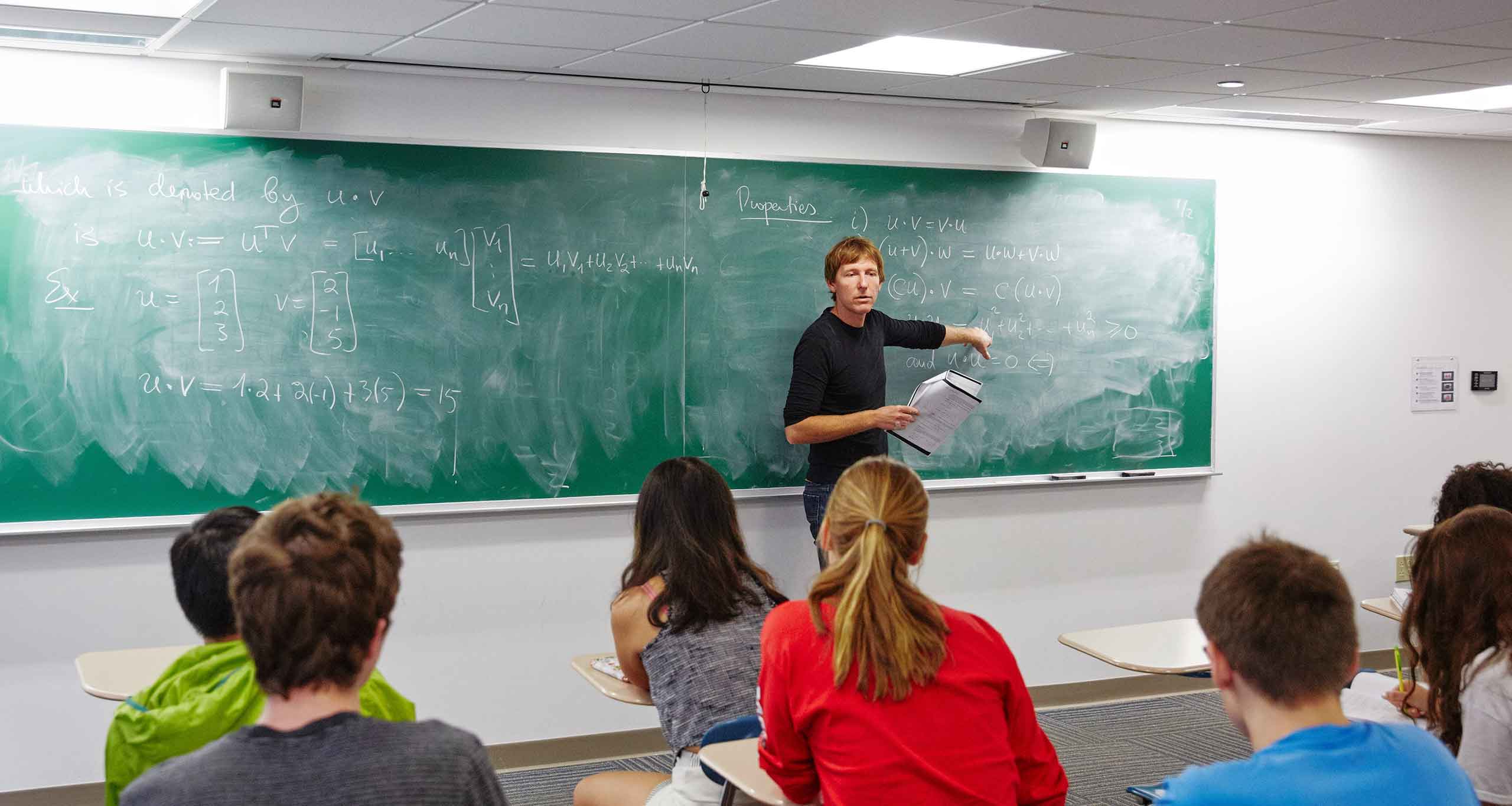Statistics
College of Arts & Sciences
-
Statistics II
CAS MA 116
Undergraduate Prerequisites: (CASMA115) or equivalent. - Introduces basic statistical modeling techniques. One- or two- sample inference for unknown means, proportions and variances, categorical data analysis, introduction to design of experiments and analysis of variance, analysis of simple and multiple linear regression models, non-parametric methods. CAS MA 116 may not be taken for credit by any student who has completed any CAS MA course numbered 300 or higher. Students may receive credit for not more than one of the following courses: CAS MA 116, CAS MA 214, or CAS MA 614. Carries MCS divisional credit in CAS. Effective Fall 2020, this course fulfills a single unit in each of the following BU Hub areas: Quantitative Reasoning II, Critical Thinking. 4 cr. Tuition: $3260
Summer 2 (June 30-August 8)
-
Basic Statistics and Probability
CAS MA 213
Undergraduate Prerequisites: good background in high school algebra. - Elementary treatment of probability densities, means, variances, correlation, independence, the central limit theorem, confidence intervals, and p-values. Students learn to answer questions such as how can a pollster use a sample to predict the uncertainty of an election' Students may receive credit for not more than one of the following courses: CAS MA 113, CAS MA 115, or CAS MA 213. Carries MCS divisional credit in CAS. Effective Fall 2020, this course fulfills a single unit in each of the following BU Hub areas: Quantitative Reasoning II, Critical Thinking, Teamwork/Collaboration. 4 cr. Tuition: $3260
Summer 2 (June 30-August 8)
-
Applied Statistics
CAS MA 214
Undergraduate Prerequisites: CASMA 213 or CASMA 115 or CASMA 113 or CDSDS 120 or CASCS 237 or consent of instructor. - Students may receive credit for not more than one of the following courses: CASMA 116, MA 214, or MA 614. Inference about proportions, goodness of fit, student's t-distribution, tests for normality; two-sample comparisons, regression and correlation, tests for linearity and outliers, residual analysis, contingency tables, analysis of variance. Effective Fall 2018, this course fulfills a single unit in each of the following BU Hub areas: Quantitative Reasoning II, Teamwork/Collaboration. Effective Fall 2020, this course fulfills a single unit in each of the following BU Hub areas: Quantitative Reasoning II, Critical Thinking, Teamwork/Collaboration. 4 cr. Tuition: $3260
Summer 2 (June 30-August 8)
B1 (IND) Mon./Tues./Thurs. 6-8 pm Add & Drop DatesLocation: MCS B31 -
Statistics I
CAS MA 115
Numerical and graphical summaries of univariate and bivariate data. Basic probability, random variables, binomial distribution, normal distribution. One-sample statistical inference for normal means and binomial probabilities. Primarily for students in the social sciences with limited mathematics preparation. CAS MA 115 may not be taken for credit by any student who has completed any CAS MA course numbered 300 or higher. Students may receive credit for not more than one of the following courses: CAS MA 113, CAS MA 115, or CAS MA 213. Carries MCS divisional credit in CAS. Effective Fall 2020, this course fulfills a single unit in each of the following BU Hub areas: Quantitative Reasoning II, Critical Thinking. 4 cr. Tuition: $3260
Summer 2 (June 30-August 8)
